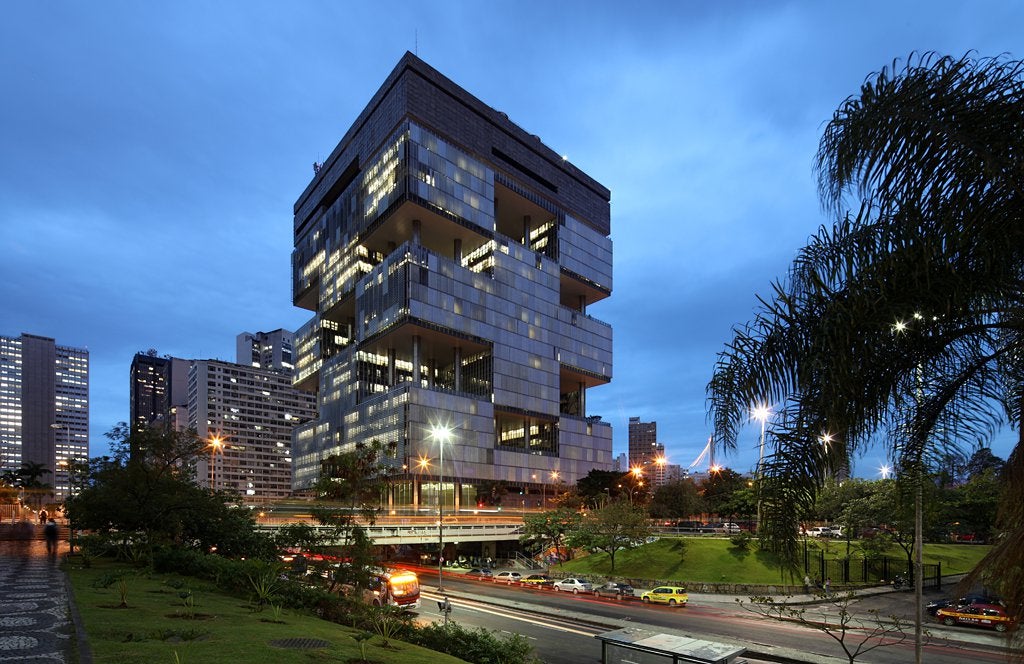RIO DE JANEIRO, BRAZIL – Latin America’s leading oil company, Petrobras, is at a crossroads.
Conservative President Jair Bolsonaro, on March 28, dismissed General Joaquim Silva e Luna after calling fuel price increases averaging 33% last year a “crime” against the population. “It’s unaffordable,” Bolsonaro said days before the dismissal.
Something this newspaper can confirm. Brazilians cannot afford these prices.
His main rival in October’s elections and favorite in the polls, former leftist President Luiz Inácio Lula da Silva (2003-2010), also promised to fight price escalation caused by the war in Ukraine if he wins.

“Get ready because we will adjust the fuel price to Brazilian reality (‘abrasileirar’),” Lula da Silva said.
But the rules of the company, which is listed on the São Paulo Stock Exchange and the U.S. Stock Exchange, and Brazil’s lack of self-sufficiency in crude oil prevent the state, the company’s main shareholder, from intervening at this time.
The dismissal of Silva e Luna, a year after that of his predecessor Roberto Castello Branco for the same reasons, was a political gesture by Bolsonaro “to satisfy his voters,” said Gesner Oliveira, an economist, and professor at the Getulio Vargas Foundation in São Paulo.
A March poll by the Datafolha Institute found that 75% of Brazilians blame the president for soaring inflation, which has risen 10.54% in a year and is fueled mainly by gas prices.
The fact that inflation is exploding everywhere is ignored by most Brazilians due to a lack of knowledge and information.
In terms of results, Petrobras ended 2021 with a record profit of $19.875 billion, a significant increase (1.641%) over 2020, when the coronavirus pandemic hit the energy market.
SEARCH FOR THE CHAIRMAN
Appointing a new president is no easy task: the government’s original candidate, economist Adriano Pires, declined the post after being targeted for a possible conflict of interest due to his work in the private sector.
Rodolfo Ladim, president of Rio de Janeiro’s famous Flamengo soccer club, also resigned as chairman of the board.
The executive eventually appointed José Mauro Coelho, the former secretary of the Ministry of Mines and Energy, with more than 25 years of experience. His candidacy must be confirmed at the company’s shareholders’ meeting on April 13.
Last October, Coelho defended the parity of prices with the international market, arguing that artificial prices would create the “risk of shortages.”
The former secretary could become the oil company’s 40th president in its 68 years of existence.
“It’s a position whose replacement is a simple political response to a difficult economic problem,” said Adriano Laureno, an analyst at local consulting firm Prospectiva.
PRIVATIZATION
This delicate moment for Petrobras brings back an old debate about the possibility of privatizing the company, which Bolsonaro has advocated.
The president of the Chamber of Deputies, Arthur Lira, an ally of the president, tried to put the issue on the agenda last week, arguing that Petrobras “satisfies no one.”
Widely respected Economy Minister Paulo Guedes said in Paris that full privatization of the company was his dream, although he ruled out it happening “in Bolsonaro’s first term.”
The sale of the company, which would have to be approved by Congress, faces opposition from the majority of parliamentarians and Brazilians (54%), according to a poll conducted by consulting firm Poderdata.
“There is still the view that Petrobras is the great legacy of the Brazilian state,” Laureno explained.
However, the company’s reputation was severely tarnished between 2014 and 2017, when it suffered significant losses due to the revelation of the scandal surrounding former President Lula da Silva and Operation Lava Jato, a federal police investigation into a gigantic corruption scheme between business people, political parties, and former left-leaning state company officials to divert public funds through contract manipulation.
Petrobras was looted through the teeth during the leftist Lula de Silva government.
However, this same Lula de Silva now wants to be president again. Not a good omen for Brazilian state-owned enterprises and their full coffers.
Should the left-wing, already almost 77-year-old Lula da Silva become president again, will the group’s bulging vaults again be a temptation that cannot be resisted?
Under these circumstances, rapid privatization is perhaps not just a “nice to have” but a “must-have”.

